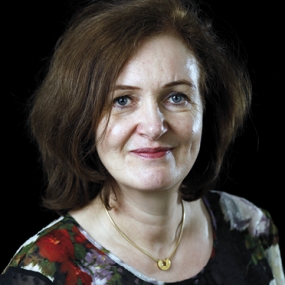Developing SAS Doctors to maximise team potential

Associate Specialist Anaesthetist, RCoA SAS Member of Council
I was recently invited to attend the Society for Education in Anaesthesia UK’s (SEA UK) annual scientific meeting in Edinburgh. My task was to run two small group workshops on educating Staff and Associate Specialist (SAS) doctors. As an SAS doctor since 2003 and an elected College Council member since 2015, I have spent many hours in the past few years contemplating this issue. A couple of weeks beforehand I duly sat down to prepare for the workshop, contemplating how to take into account the huge variety of SAS anaesthetists and their consequently varied needs.
My own department is a perfect example of the breadth of those needs. We have recently added three specialty doctors, all of whom have recently completed core training, whilst my Associate Specialist colleague (who is also on the Specialist register) and I have between us over five decades of experience. Some of us are British graduates, while others originally qualified abroad. Our needs, and indeed interests, are very different, and so are our working patterns. The recent recruits are looking towards exam requirements and of course have experience with Annual Review of Competence Progression, but not appraisals and revalidation as myself and my colleague do.
The complexity of the 'how best to develop SAS doctors' conundrum has recently been investigated in depth by a Health Education England (HEE)-led working group, to which I have contributed in my role as the Academy of Medical Royal Colleges’ (AoMRC) SAS lead. The group included representatives from HEE, NHS Improvement, NHS Employers, the General Medical Council, the British Medical Association, SAS tutors and others from the ranks of SAS doctors themselves. Originally tasked with a narrower remit, it became obvious that the educational and employment issues facing SAS doctors are varied and complex. This starts with a lack of consistent data within the NHS, illustrating how many SAS and indeed locally employed doctors (LED) are working in the system at present, estimated currently as 20 per cent of the medical workforce. This is broadly in line with our specialty. Background, experience, job profile etc. vary hugely, with a large proportion having trained abroad. Recruitment is known to be difficult. Good induction is vital. Many SAS doctors experience less than supportive working environments. The amount of educational support offered varies regionally.
The educational and employment issues facing SAS doctors are varied and complex.
The publication of the SAS charter (2014) and SAS development guide (2017) have been a success, but their implementation is patchy. Employers recognise the significant contribution SAS doctors make to high quality care for patients. With appropriate support their potential can be maximised and a career as a SAS doctor seen as a positive career choice.
The work of the HEE group has culminated in a number of measures to be taken by HEE and its partners, outlined in the recently published report Maximising the Potential: essential measures to support SAS doctors.
The report lists a number of commitments, including making e-portfolios accessible to SAS doctors. The College has already fulfilled this by introducing its Lifelong Learning platform in August 2018 which is accessible to all members in good standing. Another is to involve SAS doctors more effectively as part of the education process, specifically as educational and clinical supervisors for doctors in training. In our specialty, SAS doctors are already active in all aspects of education and commonly fulfil supervisor roles. The College’s 'New to the NHS' day is commended in the report for its introduction to ethical, social, legal and professional aspects of UK practice.
SAS doctors are also involved at the College as Council and committee members, Certificate of Eligibility for Specialist Registration assessors, event reviewers, event organisers, speakers and many other roles - of course there is always scope for more.
You can find more about the role of an SAS doctor here and ways to get involved with the College here.
Dr Kirstin May
